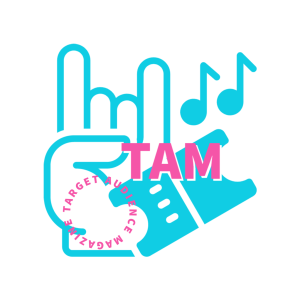Something seems very off putting when a band like U2 is using the same distribution as my next door neighbor’s unknown band of beginners.
By Donn Aaron
The digitization of music has clearly won as far as its being the present and future distribution format. This win has caused everyone involved with creating, selling or consuming music to both benefit and to suffer, but which side is actually tipping the scale?
Is a digital format actually helping or hurting musicians, retail outlets and the fans?
One can only look around and listen to the strong opinions of those working within the boundaries of this current system. On a broad scale, do musicians seem to be doing better or worse these days? The answer is clearly obvious when you ask most of them: a resounding NO.
Sure, artists can easily get their material onto iTunes just like known label acts, but with that comes the insatiable ability for most of them to hound and abuse their fans. Check out the blogs of Michael Brandvold, a veteran music marketing guru who is constantly talking about how to not be an aggressive spamming musician. Brandvold says that many musicians resort to relentless promotion tactics, and digitization has taken the most important element—mystique—out of most music.
Is the musician as much to blame as the distribution infrastructure and consumer?
Now, musicians try to make their fans aware of their every move. Fans have become desensitized if not scared off, with so much music and artist information suddenly available by everyone— from hack to pro—to everyone. At least in the past, if you lacked talent as a musician, you would never get your recordings through the filters that labels and radio provided. How about retailers? If any retailers are left beyond online outlets, another booming NO would resonate. If any brick and mortar retailers have survived, they aren’t doing well.
Through digitizing music, the consumer gained a power never before experienced: the ability to skip through music at lightning speed. With vinyl, 8-track, cassette or reel to reel tape, and even the radio request line, it was not easy to accurately skip through your music listening experience like you can with digital versions. I have seen this in action from both musicians and music fans. I rarely see anyone actually listen to a full song anymore. Has the ability to “skim” through unlimited music by almost every artist and song at any time diminished the “mystique” of actually listening to music?
Do the musicians selling via iTunes, Spotify, Internet radio spins and streaming download plays averaged fair rates of return for?
One million Internet streams of a song earns the musician around $15,000 in revenue paid. That is nowhere near the revenue paid by terrestrial radio. Internet radio suppliers have collectively lobbied the US government and succeeded in garnering laws that allow them to pay artists substantially less for their art, while forcing established artists and indies alike to use their systems of distribution. Something seems very off putting when a band like U2 is using the same distribution as my next door neighbor’s unknown band of beginners. Terrestrial radio has become very narrow in its opportunity for indie artists.
If you release music, you will have to use iTunes if you want to try to be taken seriously as an artist. But hey, there is always the option to just give away your recorded music for free. This is the ultimate devaluation of craftsmanship of any kind.
At the same time, one of the only ways left standing for artists to place their music is in TV shows, commercials and movies. More often than not, the artists are asked to essentially donate their music for the “credit” of being associated with the project. As a voting member of the Recording Academy Grammy process, their statistics indicate a drastic decrease in revenue as compared to artists from TV and film projects.
As a session guitarist, I once re-worked a song for a major artist who was having trouble getting it passed because of a sample clearance issue. I created a new melody and arrangement for the song, which became its signature, and it wound up in a major motion picture. The movie ultimately generated millions of dollars in revenue. It is currently being shown “on demand” on my TV cable service. I was asked for my services to be “for credit” and upon disagreeing was paid $500 in total. My name was listed in the credits, but I have never once benefited from this sort of “credit.”
What happens when a person robbing you puts a gun to your head? You give them all you have for free… right?
With so many artists choosing to give away everything they have for free, it appears that the effects of digitizing music has done just the opposite of helping indie artists. It has made them desperate, just like a person being robbed.

